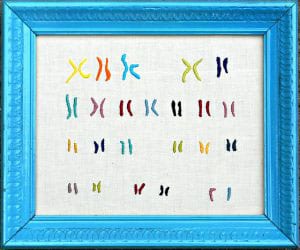Primary Immune Deficiency Diseases, or PIDDs, affect approximately half a million Americans, but there’s a twist:
There are over 200 different PIDDs, all of which are genetically passed along.
Finding an effective treatment is like trying to find the proverbial needle in the haystack.
In the case of chronic granulomatous disease (CGD), there are two types. Only male offspring inherit the one type of the disorder because it’s tied in to the X chromosome, while the autosomal version can affect both sexes.

CGD makes it really difficult for the immune system to fight off certain bacterium and fungi and children with the disease are prone to serious and sometimes deadly infections. Abscesses can form on various internal organs, including the brain and liver, making recovery especially difficult.
The good news is current treatments for PIDDs allow many people to lead productive lives, and more research is underway.
The takeaway, however, is if you have a child who has frequent, recurring infections, talk to his or her doctor!
To find help or support, contact the Immune Deficiency Foundation. They are dedicated to assisting all people affected by PIDD.
If you are looking for an allergist or an immunologist close to where you live, click here.






